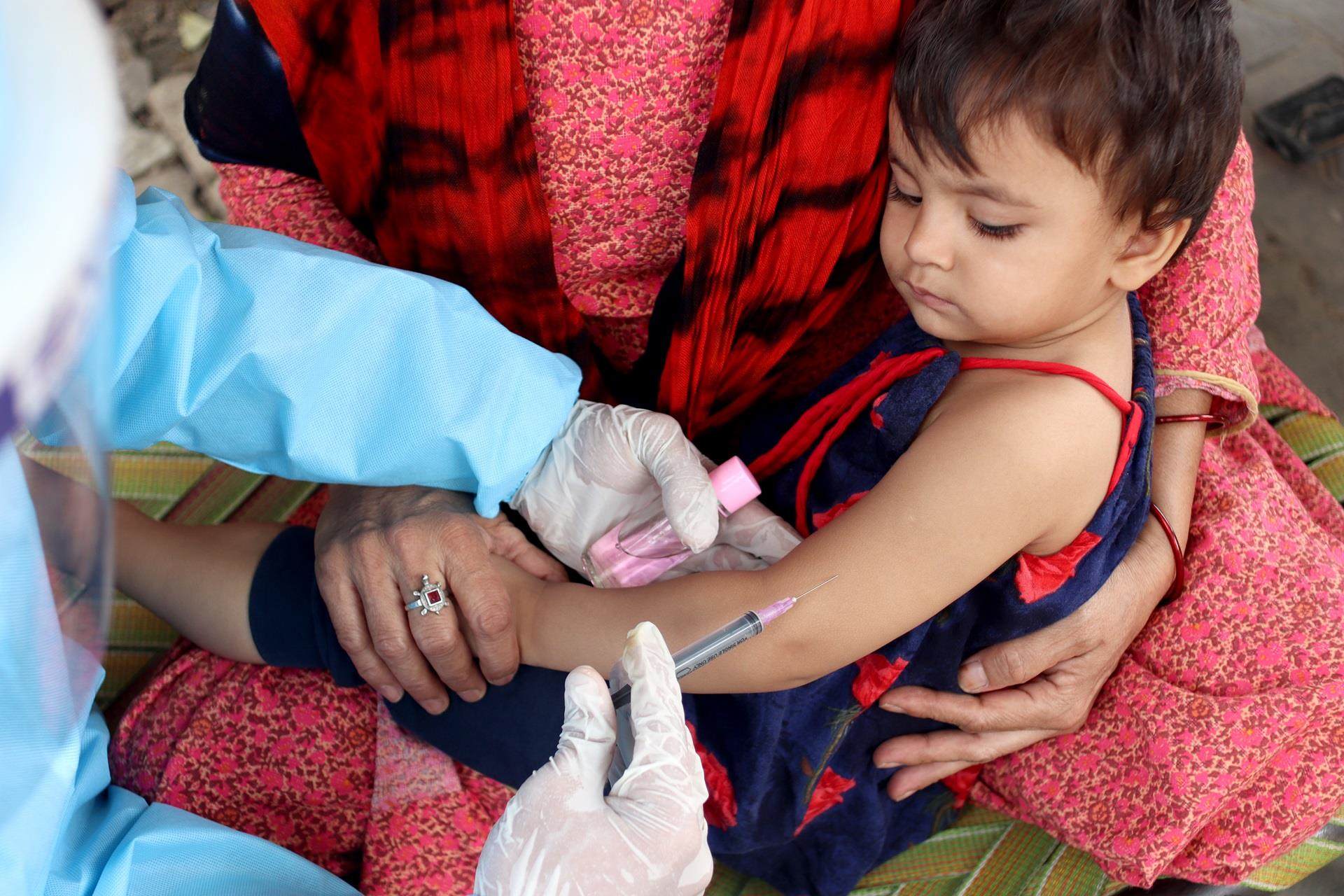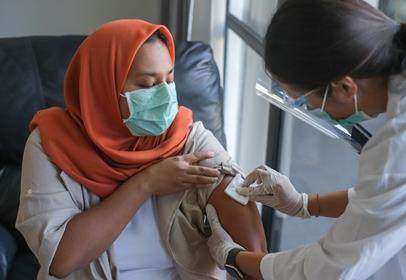
British Asian Trust (under 18)
Covid 19 Vaccination Assistance Program for children and their families in rural India
Improve access to healthcare
Asia and Pacific
2022-2023
UN Sustainable Development Goals



The issue
Every community on earth has been affected by the Covid-19 pandemic. For communities that already face multiple deprivations and inequalities, the effect can be even more pronounced, and the path to tackling the virus less straightforward.
Covid-19 has led to the first rise in extreme poverty in a generation - an additional 119-124 million people were pushed into extreme poverty in 2020.
In India, and across south Asia, hundreds of millions of people already living in extreme poverty have seen those problems exacerbated by Covid-19. Young people have been disadvantaged by school closures due to the pandemic, with figures showing school dropouts have increased by 17%. This can have a lifelong impact, with those affected facing up to fewer skills and lower wages in future.
People from underserved communities in India face barriers of mobility and
social stigma to accessing services from public health centres. For young people in rural and disadvantaged communities, the issues of lack of awareness, vaccine hesitancy, a digital access gap and poorer access to public health infrastructure compound the problem.
With the spread of the Omicron variant, the government has expanded vaccination coverage to include children in the 6-18 age group and already 36 million new beneficiaries have registered on the CoWIN platform that is key to the country’s vaccination drive. But there is more to do - the Government of India has a mission to vaccinate each and every child in India.
The impact of coronavirus in India, in terms of health and wellbeing, and the knock-on effects on the economic prospects of the poorest in society have been severe. Croda Foundation is proud that this is our second project with the British Asian Trust, alongside another to improve vaccine infrastructure across India.
British Asian Trust
The British Asian Trust is a diaspora-led international development organisation, delivering high-quality programmes in South Asia that focus on improving education, livelihoods, mental health and conservation, and tackling human trafficking.
With an aim to see a South Asia that is free from poverty where everyone can meet their full potential, they target long-term solutions that can be delivered at scale.
This leads to an approach which prioritises cross-sector partnerships, seeking innovation by drawing on the breadth of innovation and learning in the development sector, the drive of the private sector, the energy of the South Asian diaspora, and the mandate for transformation from institutions and government.
British Asian Trust projects are delivered to be catalysts for large-scale, long-term change. By embracing new social finance tools, philanthropy and technology, they deliver significant impact for disadvantaged communities.
Find out more about the British Asian Trust on their website.
The project
Croda Foundation has awarded a grant of £200,000 to enable 6-18 year olds and their families in rural communities in Karnataka, Maharashtra and Tamil Nadu, India, to access vaccination through digital support, door-to-door contact and follow up consultations.
Overall, vaccination is critical to enable these young people to return to school and continue their education. This in turn will ensure that they receive good education, which can give them a chance to secure a skilled professional job. By 2030, this will have a major impact on economic lives of people from the rural and underserved communities that have been most impacted by economic distress caused by the pandemic.
A key part of India’s vaccination programme is a digital platform called CoWIN (Winning Over Covid-19), developed by the government. The cloud-based online platform and app enables registration, immunisations and appointments, as well as issuing digital vaccine certificates.
The Croda Foundation supported project is equipping children, their parents, families and wider community with information to overcome vaccine hesitancy and to find out where to go to access the vaccine.
At a practical level, the project will support tens of thousands of new registrations amongst 6-18 year olds on the CoWIN app. Tens of thousands will be reached too via a door-to-door vaccine program in collaboration with the government (who will provide the vaccine), and through follow-up consultations in case of vaccine side-effects.
By training key health workers, mobilising local people and helping them overcome digital gaps, the project aims to reach 100,000 school children in Karnataka, Maharashtra and Tamil Nadu - vaccinating at least 80% of them. A further 20,000 adults that are reached by the project will be vaccinated too, with the number of indirect beneficiaries of the project forecast to reach up to 500,000.
People that benefit will include significant proportions of marginalised groups, such as people living below the poverty line, migrant workers, waste pickers, women and people living in slum areas.
This complements an earlier a strategic project working with the British Asian trust to accelerate and strengthen vaccine infrastructure.
Impact
80,00 vaccines will be administered to schoolchildren
20,000 vaccines will be administered to adults in rural communities
Croda Foundation, established in 2020, is an independent charitable company set up by FTSE 100 specialty chemicals company, Croda International Plc, and is registered in England and Wales (number: 1196455). The Foundation is solely funded by generous donations from Croda International Plc and led by an independent Board of Trustees.


